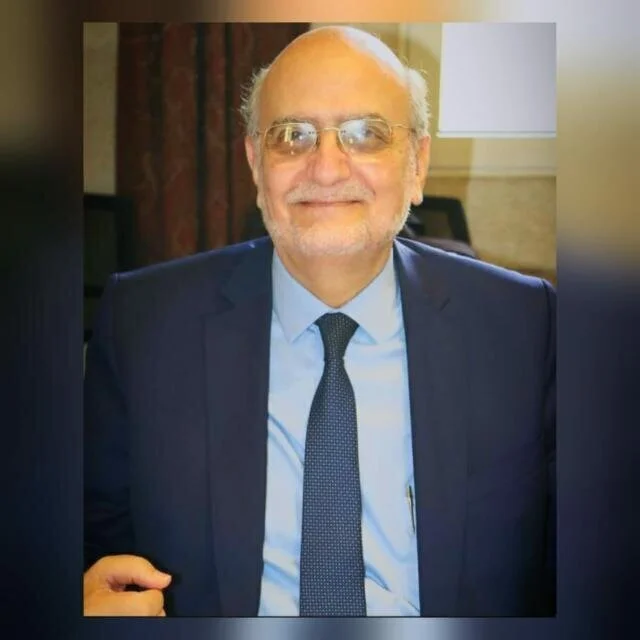General Assembly Sequential Outlook
Dr. Michel E. Abs
Secretary General of the Middle East Council of Churches
The importance of the General Assembly of the Middle East Council of Churches, which was held from 16 to 20 May 2022, lies in the lines it drew for the future work of the Middle East Council of Churches.
The above timing of the convention of the Assembly comes after Christian spiritual leaders were unable to meet in a general conference for nearly six years due to the pandemic that separated people from each other thus laid the foundations for new interactions in various fields.
The organizational layout for the preparation to the Assembly was clearly apparent to all due to the assiduous organization as well as to the quality and method of services provided to the participants, aspects that were the praised by all.
What I would like to lay out in this article are the programmatic dimensions, priorities and future directions ensuing from the Assembly deliberations.
As everyone who followed the work of the Assembly knows, there were five working groups: Christian Presence and Ecumenical Relations; Diakonia and Social Service; Communication and Advocacy; Dialogue and Social Cohesion - Rehabilitation of Social Capital; Institutional Development and Sustainability.
Preparations for these working groups were carried out by means of meetings that varied in intensity from one group to the other, and the working papers were elaborated in such a way that allowed for discussions to be quick and effective due to the scarcity of time as well as to the mandated foreseen prospect of shortening the duration of the Assembly holdings by a few hours, in order for a number of church leaders to be allowed to return to their institutions that witness great work pressure as manifest by the conditions prevailing in several countries in the Region.
From our point of view, neither the debate during the General Assembly nor the general recommendations should be the ultimate factor determining the final recommendations for crystallizing our action plans and arranging our priorities as we live in a region teeming with
events and political and economic fluctuations at a high rate. We thereby have to deal in our area with a stage that takes into consideration imminent change factors , a fact that calls for a flexible program framework. In the same context, last year we crystallized what we called "A Quadrennial Strategic Framework ", we did not on purpose call it a strategic plan. It was meant to be a framework within which we can proceed and that can accommodate the ongoing evolving processes of society uncovering changing shifts in needs and priorities.
On the other hand, we consider that the working groups of teams and experts who deliberated at the Assembly, are not to be considered as temporary as they will be invited to reflect continuously as think tanks by theme and specialization. For us, program planning is a task that is to be seen as a continuous process that works according to a systemic logic, i.e. a system in continuous interaction with its surroundings thus aspiring to monitor and anticipate eventual societal changes. Hence, it was necessary to connect the MECC circles with groups of researchers and intellectuals, as I referred to in my welcoming speech, stressing the fact that faith and science are not at odds with each other.
The establishment of think tanks has always constituted an essential part of the Council’s working methodology, a fact that was partly prevented by the pandemic as well as by the various crises experienced in Lebanon – the country that harbors the Council headquarters.
Thus it came to be that the present work of the Council has been geared to the path set for it, and the next phase will be full of seminars, panel discussions and conferences of a local, regional and international character.
The Council, with its wealth of ecclesiastical energies and relations with ecclesiastical intellectuals and members of civil society, constitutes a unique habitat for faith, human and social thought alike, and its departments are capable of accommodating these intellectual dynamics, each department according to its particular competence.
Church leaders have been keen to keep pace with this trend through their participation in all work groups, and the recommendations have been fully approved, which indicates full ecclesiastical support for what the MECC is actually engaged in.
Moreover, discussions and observations have constituted elements of rectification and clarification of a few issues. As for the basic trends, there are no discrepancies around them, as our field work teams are in constant contact with various ecclesiastical administrative bodies and social groups.
We, in the Council, adopt the basis of consultation in everything we do, so our programs reflect the pulse of church and society.
As for the final statement, it framed and crowned this trend among ecclesiastical leaders in the Middle East. Its paragraphs laid down the outlines of the future directions of the Council and gave the various working groups and church committees that make up the Council, from the Executive Committee to the advisory departmental committees, a wide margin of action at all levels to heal the wounds of our societies that are still bleeding blood, people and resources.
After the conclusion of the work of the General Assembly, we returned to our daily work, synthesizing the abundant ideas that were launched and preparing to invest them in pursuing a message and a path that we all know is necessary in this part of the world.
Tomorrow is closer than what we think.

